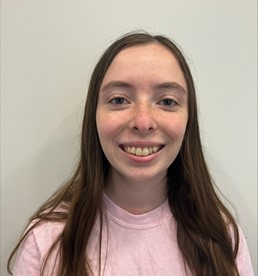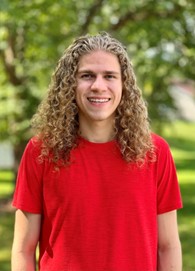
Overview
In 2005, HDSA established the Donald A. King Summer Research Fellowship program in honor of Donald King who passed away in 2004. Don was a tireless advocate for HD families and served as HDSA’s Chairman of the Board from 1999 to 2003. The purpose of this fellowship program is two-fold: first, to attract the brightest young scientists into the field of Huntington’s disease research and secondly, to facilitate meaningful HD research to clarify the biological mechanisms underlying HD pathology.
The Fellowship sponsors college students to pursue an HD research project that can be conducted over a 10-week period, between May and September. Fellowship recipients, working under the supervision of senior HD scientists, will undertake a project that is focused and achievable in a short time-frame, yet helpful in guiding future HD research. Applications are accepted between December and March each year.
Eligibility
Application is open to matriculated undergraduate life sciences students and pre-medical students who are currently attending accredited institutions in the United States. Applications will also be accepted for the summer after graduating from college, the summer after the first year of medical school, or the summer after spending a year as a laboratory technician. The students will conduct full-time research, under the direction of a mentor, investigating a subject relevant to Huntington’s disease. Applications must be accompanied by a letter of support from the mentor who oversees the laboratory where the research will be performed. The duration of each project shall be at least 10 weeks. Note that HDSA does not place students in HD laboratories.
Terms
The Donald A. King Summer Fellowship will provide funds, in the amount of $4,500, as stipend for a student(s) who completes a 10-week summer fellowship and submits to HDSA a report of their activities and findings. In addition, up to $500 is available for the host university/lab/center to help defray the costs associated with the research. Awards will be paid by HDSA directly to the student in two installments: the first payment of $3,500 shall be made upon written acceptance of the award; the second installment of $1,000 shall be made upon successful completion and fulfillment of the terms and conditions of the award. Any and all published papers, posters and abstracts resulting from research performed as an awardee must acknowledge the Huntington’s Disease Society of America, and be provided to HDSA when in-press.
Application
Each student applying for a fellowship must complete an application outlining their project, and can only submit the form with an endorsement from a faculty mentor who will supervise the student. Selection criteria will include the academic credentials of the student, the scientific merit of the proposed project, and the relevancy of the proposal to HD. HDSA’s Scientific Advisory Board will review and select candidates. Each recipient will be required to submit a progress report upon completion to receive final payment. Payment will be made directly to the fellowship recipient. A separate payment for the research expenses will be paid directly to the host institution where the research will be performed. Progress Reports will be circulated among all HDSA senior investigators and reports of interest may be published by HDSA in its research publications. Awardees may be invited to present the results of their research findings at an annual HDSA Convention. You can read the 2026 HDSA Donald A. King Summer Research Fellowship Request for Proposals here.
Important Dates
HDSA accepts applications for the Donald A. King Summer Research Fellowship through ProposalCentral yearly.
- Completed applications for the summer of 2026 must be received by HDSA no later than Friday, March 6, 2026, at 5:00 pm (EDT).
- Awardees will be notified by late April of 2026.
- Final reports are due by the end of September 2026.
Click here to begin your application. From the ProposalCentral Home tab, click “Create New Proposal”, then search Grant Makers for Huntington’s Disease Society of America. More detailed instructions can be found here.
Questions about the Donald King Fellowship or the application portal may be directed to Tamara Maiuri, PhD, Associate Director, Research & Patient Engagement, and Howlatu Sowe, Mission Program Coordinator, HSowe@hdsa.org.




